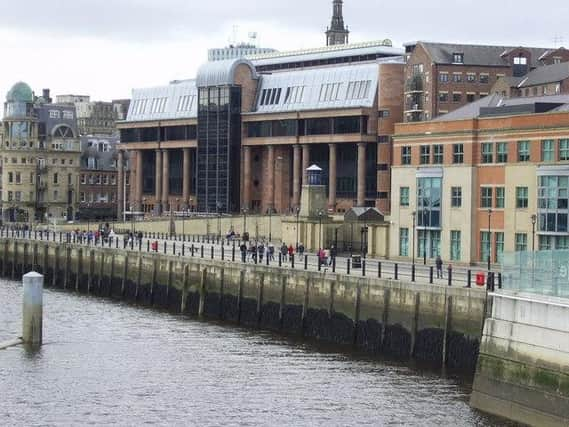North East students almost died after taking equivalent 300 cups of coffee in one dose when experiment went wrong


Alex Rossetto and Luke Parkin each ingested around twice a potentially fatal dose during a practical exercise at Northumbria University faculty of Health and life Sciences in March 2015 because of a routine maths mistake.The men, who were both 20 and in the second year of a sports science studies degree, suffered immediate "violent" side effects including dizziness, blurred vision, shaking and rapid heartbeat, after taking 100 times the amount they should have.Both students were taken to hospital where they spent days in intensive care and had to undergo dialysis.Prosecutor Adam Farrer told Newcastle Crown Court a doctor confirmed both students were in a "potentially life threatening condition".Mr Farrer added: "If they had not been admitted to intensive care immediately for treatment they could have died from caffeine overdose."The court heard both men lost large amounts of weight as a result of what happened and their sports training regimes were effected.The students have both been able to continue with their studies, and have embarked on post graduate education, but both suffered months of side effects from the caffeine intake.Northumbria University, which had no proper risk assessment for the experiment in place, admitted a breach of Health and Safety Legislation.The court heard the university, which has charitable status and a turnover of around 247 million, according to the latest accounts, had previously used Pro Plus-type tablets in the experiment, which is called The Wingate Test, but for the past few years had switched to using pure caffeine in powder form.During the experiment, Mr Rossetto was given 30.7g of caffeine and Mr Parkin given 32g, which was mixed into a solution of water and orange juice, to test it's effect during exercise.Mr Farrer added: "It was 100 times the dosage they should have been given."They should have been given 306 mg in the case of Mr Rosetto and 320mg in the case of Mr Parkin."No one, including the lab technicians or Senior lecturer, checked to ensure the dosage had been correctly calculated."Mr Farrer said a deadly dose for Mr Rossetta would be around 15.3g and for Mr Parkin around 16.4g.He said the average cup of coffee contains around 0.1g of caffeine.The court heard the lecturer, who had spoken about the dangers of caffeine overdose during an earlier class that morning had allowed students to work with technicians to calculate how much caffeine each volunteer should take, according to body mass.The students' heights and weights were taken correctly but the court heard it was during calculations of how much caffeine should be taken per body mass kilo that a mistake with the mathematics was made, due to a decimal point being put in the wrong place.Mr Farrer added: "The prosecution say the result of the overdoses to both students could easily have been fatal."Mr Farrer said the technicians did not have enough "information, instruction or training" to supervise such practical experimentation on human subjects and that the overdoses were due to "mathematical and general knowledge error".He added: ""Students were entitled to put their trust in the university to ensure their safety. "The university's failure to follow health and safety requirements was cumulative, persistent, long standing and systemic."In this case the degree of foreseeable risk from caffeine experimentation was very high and well known to the university."Despite this, there was no suitable and sufficient risk assessment, inadequate supervisor, inadequate checks and failure to follow rudimentary health and safety legislation."University Vice Chancellor and chief executive Andrew Wathey, along with other senior staff, were in court for the hearing.Peter Smith, defending, told the court: "They are here because they care. They are the human face of the university."All those involved are deeply sorry and genuinely sorry for the breach in this case."Mr Smith said the university has tried to assist both men and their families after the accident.